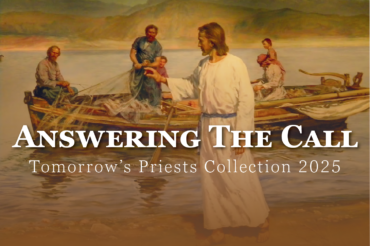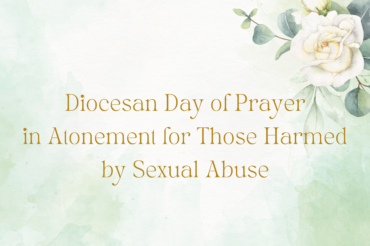When you see as God sees, out of love, you will do as God says
Detail of ‘The Sermon of the Beatitudes’ from the series The Life of Christ, James Tissot, 1886-96. (public domain, Brooklyn Museum)
Many will find today’s Gospel filled with impossible sounding “hard sayings” by Jesus. Love your enemies. Don’t retaliate. Give to everyone who asks. Lend without expecting repayment. Jesus even clarifies that we should do this to those who are wicked and who clearly don’t deserve our kindness.
Jesus is calling his followers to a higher standard. He notes that, “Even sinners love those who love them,” we must do more! We are called to be merciful, just as our Father is merciful. The fact that he makes a distinction between what “sinners do” and what his “followers are called to do,” points out that something has happened in the hearts of his followers that makes them different. We usually call this conversion.
Today’s Gospel immediately follows the Beatitudes. Beginning in the tradition of St Augustine and developed further by St Thomas Aquinas, the Church has understood the Beatitudes as stages in the journey of the soul towards God.
We experience spiritual poverty which gives us humility to then receive a hunger for righteousness and relationship with God. As we draw closer to God in prayer and knowledge of his Word, our soul weeps because of our awareness of our sin, but God gives the soul supernatural joy through forgiveness and the reception of the Spirit. St. Thomas calls this ‘joy’ delectation (delectatio), which signifies equally both pleasure and joy. Yet the joy of the Lord will not be experienced without persecutions and sufferings in this life.
When we come to today’s reading, Jesus is not giving general rules to be followed by all, but instead is speaking to those who are already experiencing God’s supernatural joy and a life in the Spirit. This gospel is a call to deeper perfection.
The beatitudes respond to our natural God-given desire for happiness (CCC 1718). As St. Augustine reminded us in this Confessions, there is a God-shaped hole in the human heart, and we remain restless until we find God and allow him to fill us with his beatitude. Frankly, it would be hard to imagine someone who does not desire to be happy. While we all desire to be happy, are we willing to trust God to give us the desires of our heart? Many people seek to find happiness on our own terms. There are many partial and false roads to happiness that miss the genuine human fulfillment God intends to give us in his beatitude.
The Catechism notes that the Beatitudes are the very heart of Jesus’ preaching (CCC 1716). Jesus because flesh so that we might know God’s love (CCC 458) and so that he might become a model of holiness for us (CCC 459). In this way, the beatitudes are a demonstration of Jesus’ discipleship which reveals to us what it means to be a Christian and the blessings and rewards of eternal happiness (CCC 1717).
The supernatural happiness we receive from God surpasses our human understanding. It is a an entirely free gift of God that disposes us to enter into the divine joy (CCC 1722). It is a gift, however, which must be received, and so requires our conversion and the reception of the supernatural grace of the Spirit (CCC 1727). It begins with humility and so implies the submission of our will to his.
There is a kind of paradox here. When we surrender our desire to God, he supernaturally gives us the fulfillment of all desires within our hearts. Our life then, in turn, becomes a kind of countercultural paradox.
To those who seek this perfection Jesus challenges, “But rather, love your enemies and do good to them, and lend expecting nothing back; then your reward will be great and you will be children of the Most High” (Luke 6:35). The church teaches that the call to holiness is for every Christian. Jesus tells us, stop judging, and condemning. By forgiving and giving gifts to others, we will receive even more from our Father.
Do you trust God to give you the desire of your heart? Do you trust him to give you genuine happiness? The spiritual truth revealed in the Beatitudes is this; When you see as God sees, out of love, you will do as God says. This is not a truth that can be lived by simply following the rules and trying to be good. It is not external, but something which comes from within our hearts. It flows out of relationship with God.
But how do we have our eyes opened to see God and to experience his love? Beginning with humility, this journey involves meditating on the Word of God and spending time with alone with God in prayer.
Very soon we will be entering the season of Lent. Perhaps a challenge for this year’s Lent could be to spend at least 15 minutes a day meditating on Scripture and simply being alone with God in prayer.
Lord, open the eyes of our hearts that we might see you. Help me to understand the depths of your love, and then turn my eyes back upon this world.
Deacon Scott McKellar is Pastoral Associate at St. Therese Parish, North.
Click here to view this Sunday’s readings on the USCCB website





